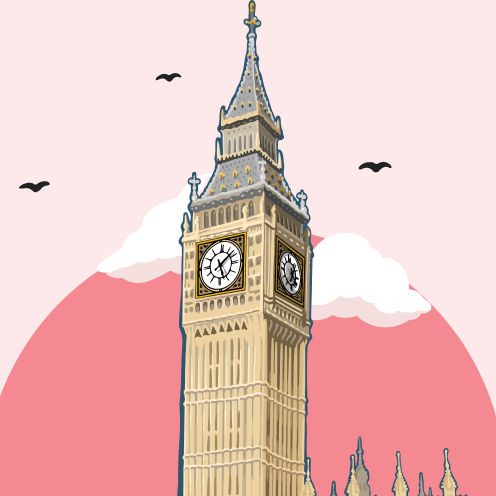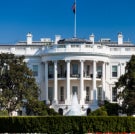Voters believe the UK should prioritise its relationship with Europe over the US, a poll has revealed, as concern grows about the re-election of Donald Trump.
Some 44 per cent of people think Britain’s economic future lies with its closest neighbours in the EU, compared with 19 per cent who think the government should prioritise links with the US, a YouGov poll commissioned by Best For Britain – a pro-EU campaign group – showed.
The poll of more than 4,300 people was carried out between 25 and 27 November, and comes as president-elect Trump looks set to hike trade tariffs on goods entering the US.
He has already raised the spectre of tariffs with his nearest neighbours in Canada and Mexico in a bid to curb migration, as well as new fees on Chinese goods.
The polling also shows that more Britons trust the EU, at 49 per cent, than the US, on 30 per cent.
More people were distrustful of the US than those who said they trusted the country, with 40 per cent of respondents.
In a blow to the previous government’s “global Britain” strategy, which aimed to broaden the UK’s trading partners to rapidly growing economies across the world, voters took an unfavourable view of China, India, Saudi Arabia and Brazil – which all scored 12 per cent or lower in terms of trust with respondents.
Voters who had previously backed the Tories but switched to Labour in the summer were among those who supported closer ties with Europe, signalling the government can have some confidence it would not divide its electoral coalition by prioritising trade with the bloc.
Some 160 of those polled were part of this group of voters.
Best for Britain is an organisation fighting to keep the UK open to EU membership and “fix the problems Britain faces after Brexit”.
Though the polling suggests the public favour closer ties with Europe over the US, Sir Keir Starmer has rejected suggestions the UK needs to make such a choice, recently describing it as “plain wrong”.
The prime minister has attempted to build bridges with the Trump administration, meeting the president-elect in New York in September and offering him “hearty congratulations” during a phone call after his re-election.
He has also sought to reset the UK’s relations with European nations since coming to power, meeting leaders from across the continent during his five months as prime minister.
A test of whether his strategy bears fruit will take place when a review of the trade and co-operation agreement, the basis for the UK-EU relationship after Brexit, takes place in 2026.
An influential commission of MPs and business leaders, which has provided recommendations for the EU-UK relationship after Brexit, is set to reconvene under the new leadership of Labour MP Andrew Lewin.
Mr Lewin, the MP for Welwyn Hatfield and chair of the UK Trade and Business Commission, said it is “vital for the UK to strengthen our ties with our biggest and closest trading partner” – the EU – as the world enters “an increasingly volatile and uncertain global trading environment”.
He added: “It’s clear from this latest polling that public opinion has moved on from the binary Leave-Remain divide. Attitudes are shifting and people and businesses recognise that we need to rebuild relations with the EU to help our economy to succeed.
“All of this means the role of the UK Trade and Business Commission in putting forward pro-growth policy proposals will be more important than ever.”
Speaking at the press gallery lunch in Westminster on Thursday, shadow chancellor Mel Stride said the election of Donald Trump poses an “external threat to the UK economy”, saying his economic policies could drive up UK inflation and interest rates.
“We have a new president about to go into the White House who is talking about tariffs.
“He is also talking about dropping taxes, possibly through running a higher deficit, which may have knock-on consequences for the bond market and import higher interest rates into our shores”, he said.
“All of that adds up to a real need to have an economy that has stable foundations, which is what the government talks about and is not doing.”
The FCDO has been contacted for comment.
Source: independent.co.uk



